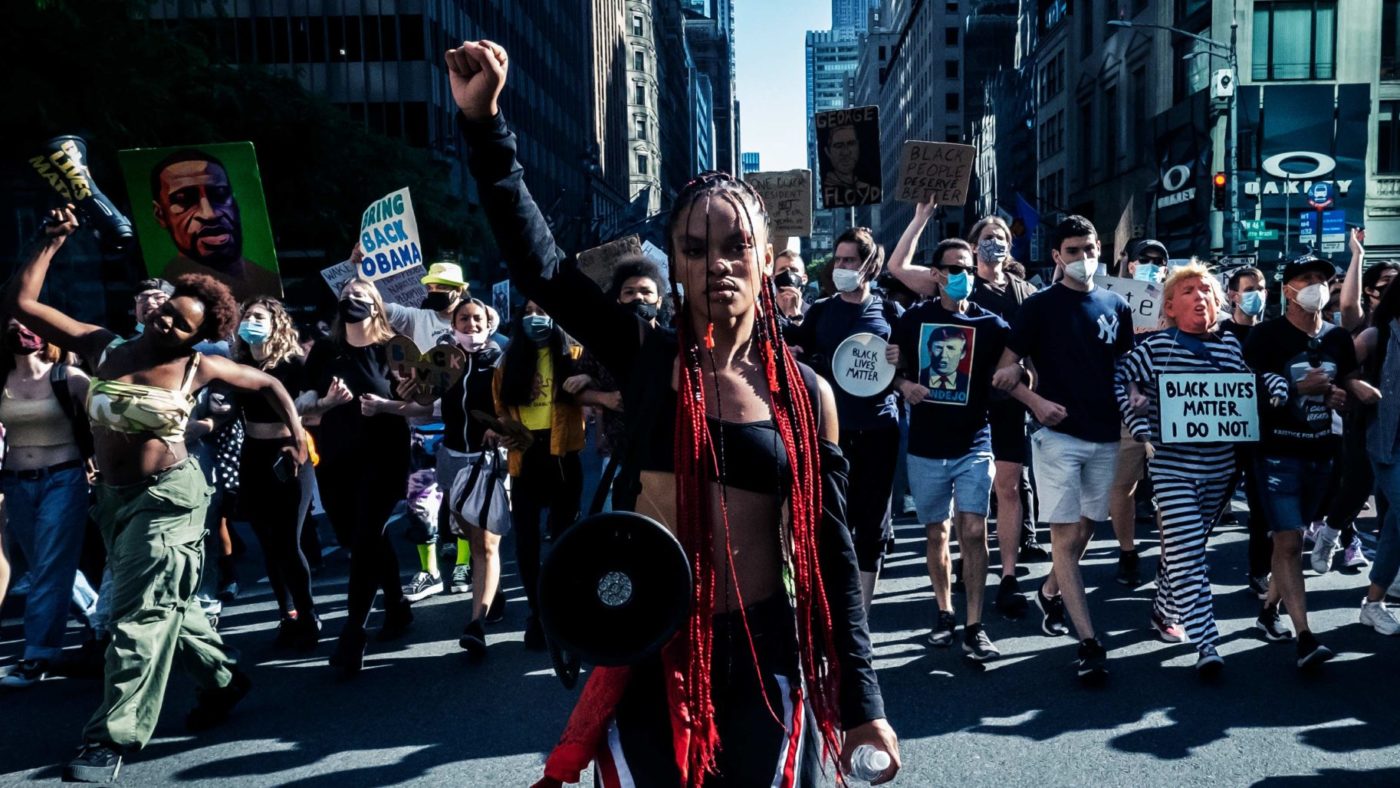If there might be a “successor ideology” to liberalism and the main principles of the enlightenment in the offing, as the American essayist Wesley Yang forecasts, it is likely to pose a large challenge to the practice of journalism in free societies.
As evidenced in the debates and polemics around Black Lives Matter, transgenderism and the legacies of empire (especially in statuary), this is a loosely aligned series of movements, which seek an (activist-) approved position on given issues of contention – such as race. Once found, debate or disagreement with that position is often seen as unacceptable and evidence of bigotry – usually racist.
The best short definition of this I’ve found comes from the former Washington Post reporter, Wesley Lowery. Lowery left the Post after a disagreement with the editor, Marty Baron, over what constitutes “journalistic integrity” and tweeted that “we need to rebuild our industry as one that operates from a place of moral clarity”.
But moral clarity is evanescent. It had been clearly moral, over centuries, to turn Africans, Indians and the native South Americans, sometimes forcibly, into Christians – by the Catholic Spaniards in South America from the early 16th century to the Protestant British in India from the mid 19th. Today, that’s been substantially reversed: it’s clearly moral to honour, or at least accept, the different faiths of diverse peoples.
Facts, if well based, don’t change, including facts derived from hard reporting on racism, oppression, war and corruption. The reporting of William Howard Russell for The Times on the Crimean War in 1854-55 still stands up well – in part because, unused to having reporters about them, the commanders of the British and French armies let Russell be privy to their discussions on the battles.
Opinions are just that – opinions, open to challenge and refutation. Journalism has struggled to be able to print differing opinions since the beginnings of the trade in the early 17th century. John Milton’s Areopagitica (1644) is a foundation text, one which sought to end state censorship with the cry: “Give me the liberty to know, to utter, and to argue freely according to conscience, above all liberties” (he excluded Catholics’ views: that, too, was clearly the moral thing for a Protestant to do).
A less compromised call for freedom came two centuries later, from the philosopher John Stuart Mill in his “On Liberty” (1859), which argued that both “right” and “wrong” views are valuable: “If the opinion is right, they (readers) are deprived of the opportunity of exchanging error for truth; if wrong, they lose, what is almost as great a benefit, the clearer perception and livelier impression of truth produced by its collision with error”.
Most reporting in the 19th century and into the 20th wasn’t up to Russell’s standard, and much of it still isn’t. But after World War II, the movement for responsible news and the connection between accurate news and democratic citizenship was made explicit, most powerfully in the US and spreading elsewhere. Its morality was in a liberal, enlightenment vision for a journalism which both led and served: it has remained an ideal – often flouted, never dethroned.
It is easy to point out where reporting on racism, on police brutality, on poverty, on prejudice and on exclusion has been too scanty and flaccid. But it’s hard to see what other normative mission could produce journalism worthy of the name when it does report on these. It is even harder to understand how, without the ideal as a guide, the large issues of the day could be recorded and analysed to give an understanding rooted in the facts of the matter – records which can stand the test of time and ensure differing audiences accept them as a well-sourced, well-intentioned version of the truth.
And it is still harder yet to concede that differing opinions should not be published, including those as abrasive to liberal opinion as the op ed in the New York Times by Republican Senator Tom Cotton calling for a massive show of armed might before Black Lives Matter demonstrations (‘Send in the Troops’, June 3). This is especially the case for a paper which has reproached itself in the Trump years for not being alive enough to complaints of marginalisation by those whose views disagree with its own – making the firing of the Op Ed page editor, James Bennett, a great mistake. A mistake because, as Mill wrote, an opinion which you believe to be false gives the reader a “livelier impression of truth” – and because Milton’s call for the space “to utter and to argue freely, according to conscience” will put into play vast amounts of material which others’ consciences find unconscionable, and are thus welcome to a robust democracy and an active, disputatious citizenry.
Destroying, or rendering fearful, the tenets of a journalism which has long claimed its privileges and its civic eminence lie in a search for truth and a commitment to pluralism is to disempower every level of society, especially the hard-pressed. It is to leave both truth and opinion at the service of the powerful and the ruthless.
For all the hypocrisies and blindnesses which afflict the business of reporting and opining, no other ideal gives us the opportunity to test our beliefs against others, and to understand something of the complexities of the world.
Click here to subscribe to our daily briefing – the best pieces from CapX and across the web.
CapX depends on the generosity of its readers. If you value what we do, please consider making a donation.


